Content Summary
Maintaining good health is the foundation for leading a fulfilling and productive life. While occasional efforts towards health and wellness are beneficial, it is the consistency of daily health routines that truly makes a lasting impact.
By prioritizing our well-being through intentional daily practices, we can proactively take charge of our physical, mental, and emotional health. This article will explore the importance of daily health routines and provide actionable steps to help you stay healthy.
Physical Fitness
Regular physical activity is crucial for overall health and vitality. Engaging in at least 30 minutes of moderate-intensity exercise each day has numerous benefits. It improves cardiovascular health, strengthens muscles and bones, boosts energy levels, and helps manage weight. Find activities you enjoy, such as walking, jogging, swimming, or dancing, and incorporate them into your daily routine.
How Many Times a Week Should I Exercise to Stay Healthy?
To stay healthy, it is generally recommended to engage in regular exercise throughout the week. The American Heart Association and other reputable health organizations typically suggest the following guidelines for adults:
Aerobic Exercise: Engage in moderate-intensity aerobic exercise for at least 150 minutes per week or vigorous-intensity aerobic exercise for at least 75 minutes per week. Alternatively, you can combine moderate and vigorous exercise to achieve the recommended amount. It is advisable to spread out these sessions across the week, aiming for a minimum of 30 minutes per day on most days.
Strength Training: Incorporate strength training exercises at least two days a week. Focus on all major muscle groups, including the arms, shoulders, chest, back, abdomen, hips, and legs. Strength training can involve bodyweight exercises, resistance bands, free weights, or weight machines.
Flexibility and Balance Exercises: Include flexibility and balance exercises regularly to improve joint mobility, prevent injuries, and enhance stability. These exercises can be practiced daily or on most days of the week and may include activities like stretching, yoga, tai chi, or specific balance exercises.
Listen to Your Body: It's important to note that individual exercise needs and abilities may vary. Some individuals may require more or less exercise depending on their fitness level, health conditions, and goals. Always listen to your body and consult with a healthcare professional before starting or significantly changing your exercise routine.
Remember that consistency is key when it comes to exercise. Rather than focusing solely on the number of times per week, prioritize establishing a regular exercise routine that suits your schedule and preferences.
Find activities you enjoy, mix up your workouts to keep them interesting, and make exercise a part of your lifestyle for long-term health benefits.
Aim for at Least 150 Minutes of Moderate Exercise per Week
Regular exercise improves cardiovascular health, strengthens the immune system, enhances mood, and helps maintain a healthy weight. Strive for at least 150 minutes of moderate-intensity exercise or 75 minutes of vigorous activity every week.




Balanced Nutrition
A well-balanced diet is the cornerstone of good health. Opt for whole, unprocessed foods that are rich in nutrients. Include a variety of fruits, vegetables, whole grains, lean proteins, and healthy fats in your meals. Avoid excessive sugar, refined grains, and unhealthy fats. Practice portion control and mindful eating, listening to your body's hunger and fullness cues.
Nourish Your Body with Healthy Foods
Embrace a Balanced Diet: A well-rounded diet includes a variety of fruits, vegetables, whole grains, lean proteins, and healthy fats. Incorporating colorful and diverse foods ensures that you receive essential nutrients, vitamins, and minerals necessary for optimal health.
What is a Healthy Balanced Diet and Foods?
A healthy balanced diet is one that provides all the essential nutrients, vitamins, and minerals required for optimal health and well-being. It involves consuming a variety of foods from different food groups in appropriate proportions. Here are the key components of a healthy balanced diet:
Fruits and Vegetables:
Include a wide variety of colorful fruits and vegetables in your diet. They are rich in fiber, vitamins, minerals, and antioxidants that promote good health. Aim for at least five servings of fruits and vegetables each day, and choose fresh, seasonal produce whenever possible.
Whole Grains:
Opt for whole grains such as whole wheat, brown rice, oats, quinoa, and barley instead of refined grains. Whole grains are a good source of fiber, complex carbohydrates, and important nutrients. They provide sustained energy, promote digestive health, and can help lower the risk of chronic diseases like heart disease and type 2 diabetes.
Lean Proteins:
Include lean sources of protein in your diet, such as skinless poultry, fish, eggs, legumes (beans, lentils, chickpeas), tofu, and low-fat dairy products. Protein is essential for building and repairing tissues, supporting immune function, and maintaining muscle mass.
Healthy Fats:
Choose sources of healthy fats, such as avocados, nuts, seeds, and fatty fish (salmon, mackerel, sardines). These fats are rich in omega-3 fatty acids, which are beneficial for heart health. Limit the intake of saturated and trans fats found in fried foods, processed snacks, and fatty meats.
Dairy or Dairy Alternatives:
Include low-fat dairy products like milk, yogurt, and cheese in your diet, if tolerated. If you are lactose intolerant or prefer non-dairy options, choose fortified alternatives like soy milk, almond milk, or oat milk that provide essential nutrients like calcium and vitamin D.
Hydration:
Drink an adequate amount of water throughout the day to stay hydrated. Water is essential for digestion, circulation, temperature regulation, and overall bodily functions. Aim for at least 8 glasses (64 ounces) of water daily, and adjust the amount based on your activity level and climate.
It's important to note that portion control is also crucial to maintaining a healthy balanced diet. Be mindful of your serving sizes and listen to your body's hunger and fullness cues. Additionally, limit the consumption of processed foods, sugary beverages, and foods high in sodium and added sugars.
Remember, a healthy balanced diet is not about strict restrictions or deprivation but rather about making mindful choices and enjoying a wide variety of nutritious foods in moderation.
Increase Plant-Based Foods
Plant-based foods such as fruits, vegetables, legumes, and nuts are rich in fiber, antioxidants, and phytonutrients, which help reduce the risk of chronic diseases such as heart disease, diabetes, and certain cancers.
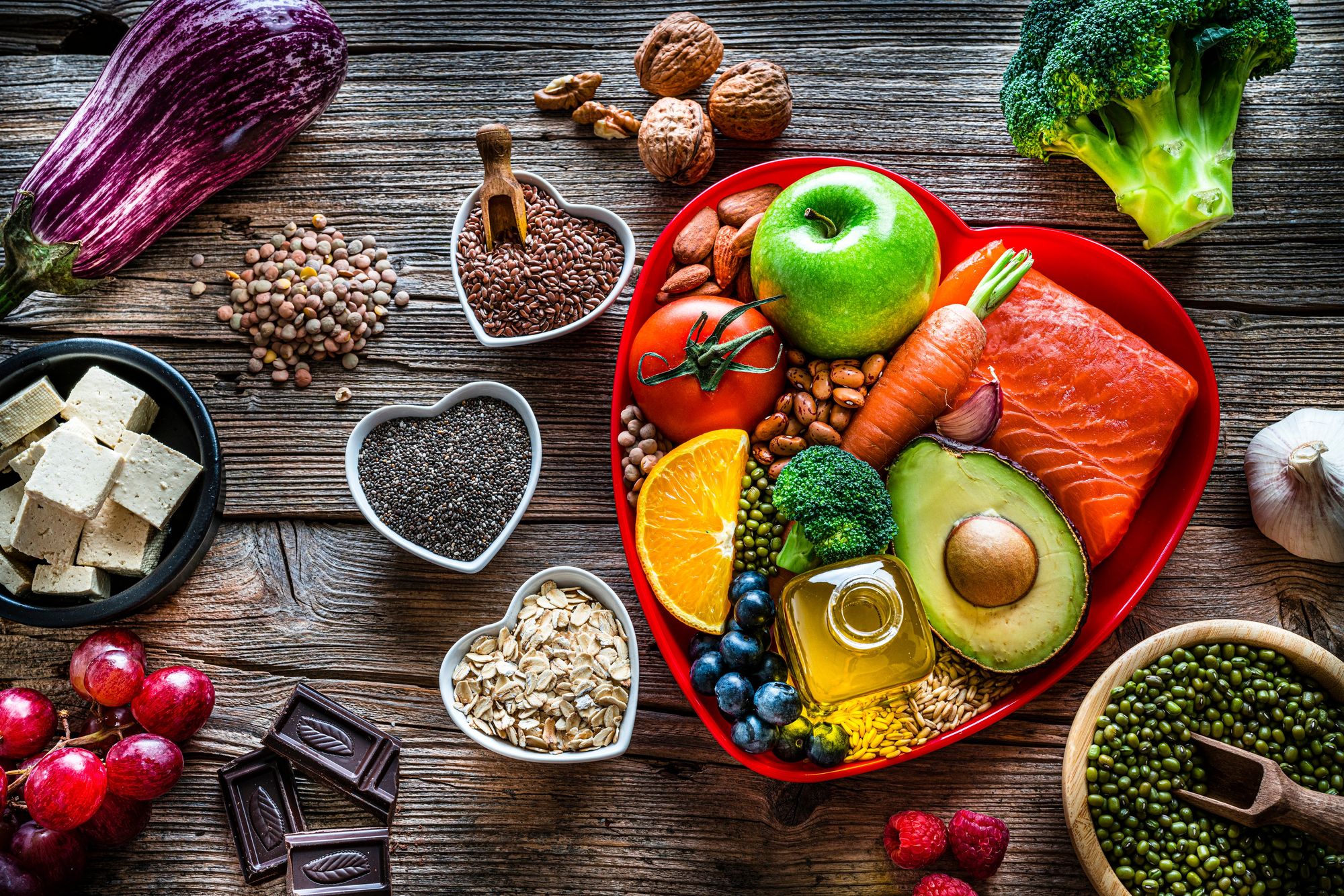
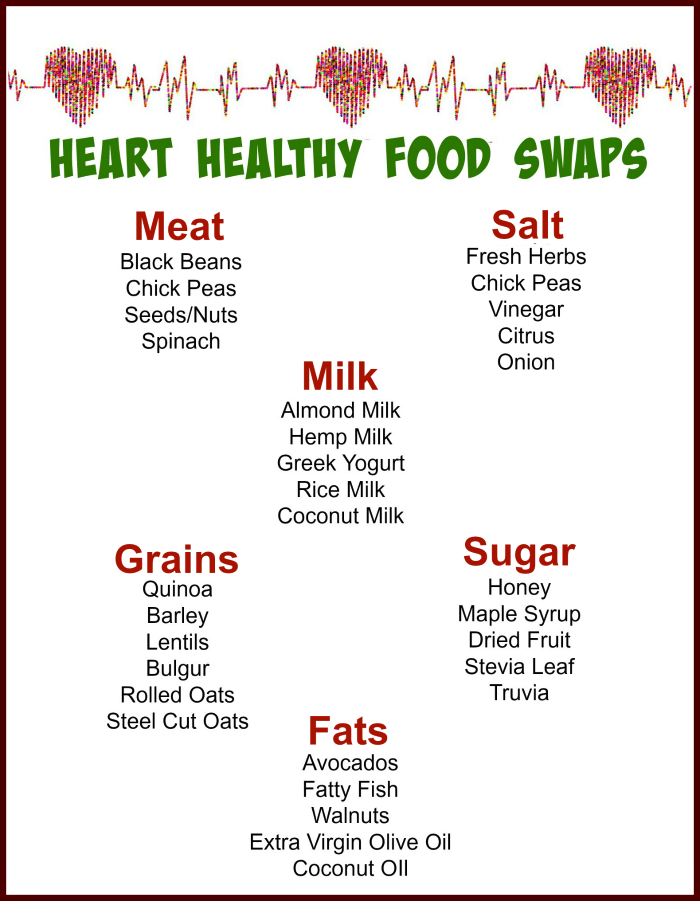
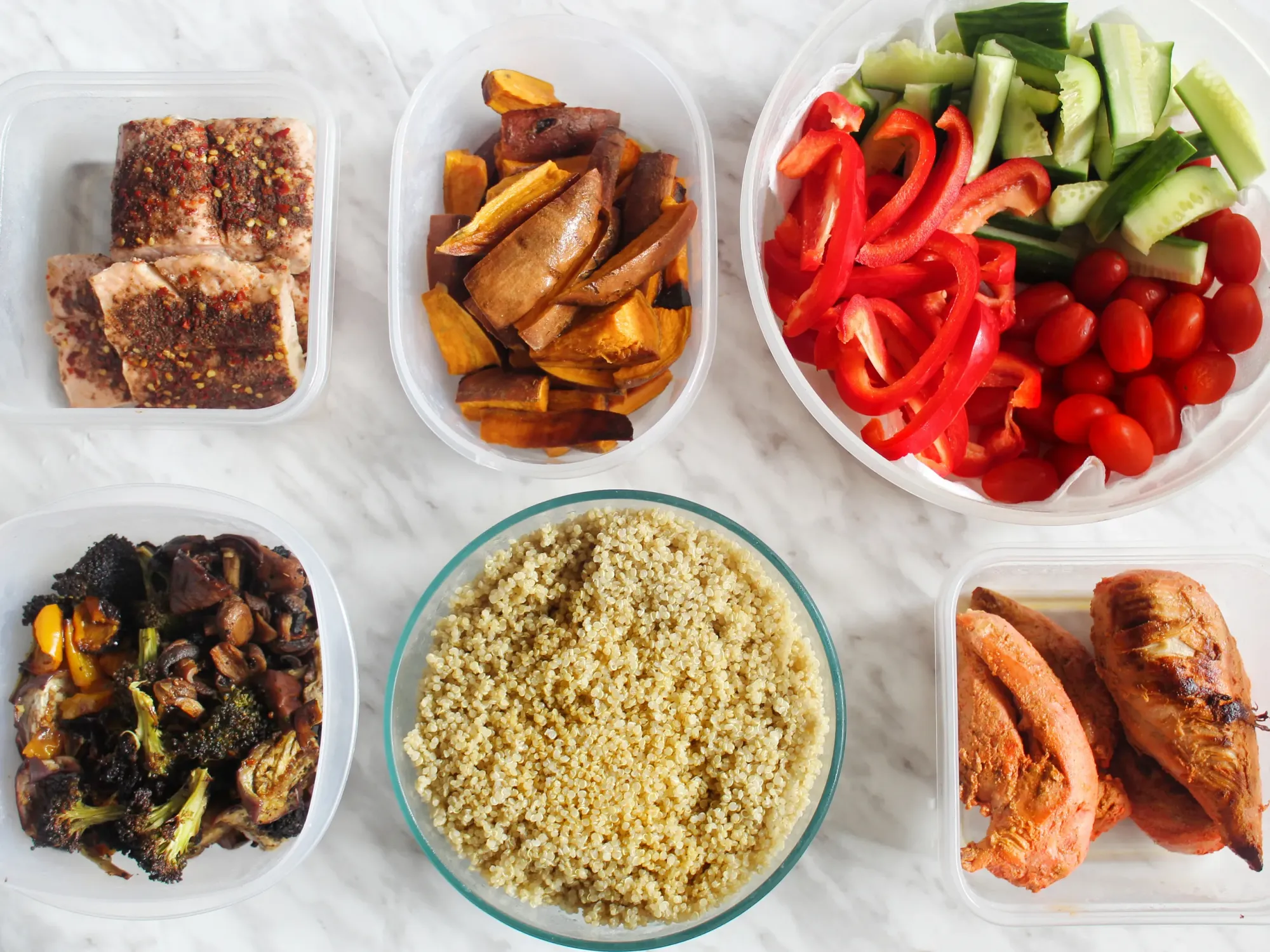
Hydration
Water is essential for proper bodily functions. Stay adequately hydrated throughout the day by drinking water regularly. Aim for about 8 cups (64 ounces) per day, adjusting based on your activity level and individual needs. Proper hydration supports digestion, circulation, metabolism, and overall well-being.
Sufficient Sleep
Quality sleep is often undervalued but vital to maintaining optimal health. Establish a regular sleep schedule and aim for 7-8 hours of uninterrupted sleep each night. Create a calming bedtime routine, limit electronic device use before bed, and ensure your sleep environment is comfortable and conducive to restful sleep. Prioritize sleep as a key component of your daily routine.
Stress Management
Chronic stress negatively impacts both physical and mental health. Incorporate stress management techniques into your daily routine. Practice mindfulness meditation, deep breathing exercises, or engage in activities that bring you joy and relaxation. Find healthy outlets for stress, such as hobbies, spending time in nature, or seeking support from loved ones or professionals.





Regular Health Check-ups
Preventive care is crucial for identifying and addressing potential health issues before they become major concerns. Schedule regular check-ups with your healthcare provider. This includes routine screenings, vaccinations, and discussions about any health concerns or questions you may have. Stay informed about your health status and take proactive measures for prevention.
Mental and Emotional Well-being
Nurturing your mental and emotional health is just as important as your physical well-being. Make time for activities that promote self-care, such as practicing gratitude, journaling, engaging in creative pursuits, or seeking therapy or counseling when needed. Foster positive relationships, maintain a healthy work-life balance, and set boundaries to protect your mental and emotional well-being.
The Importance of Healthy Nutrition and Its Benefits
Healthy nutrition can make your body strong and can help it to grow and repair itself while an unhealthy nutrition plan can make your body weaker and can make you ill and you will not be able to fight against certain minor diseases.
The purpose of nutrition is quite simple to understand and there are three things that can tell you its importance and purpose. First of all, you have a body and secondly, that body needs some very precise things to nourish and grow. Thirdly nutrition includes all those things which can help your body to grow. Now after this understanding, you need to know what the actual relationship between food and nutrition is.
The 4 Basic Nutrition Your Body Need
The basic goal of everyone is to improve health and to improve health, you must provide enough an adequate amount of nutrition to your body, and especially for your physical health and fitness, you must make sure that you are providing enough nutrition to your body.
There are four categories of nutrition that your body always need in enough amounts. These four categories are protein, fat, carbohydrate, and vitamins.
Authors' Choice of Proteins
Orgain Organic Vegan Protein Powder
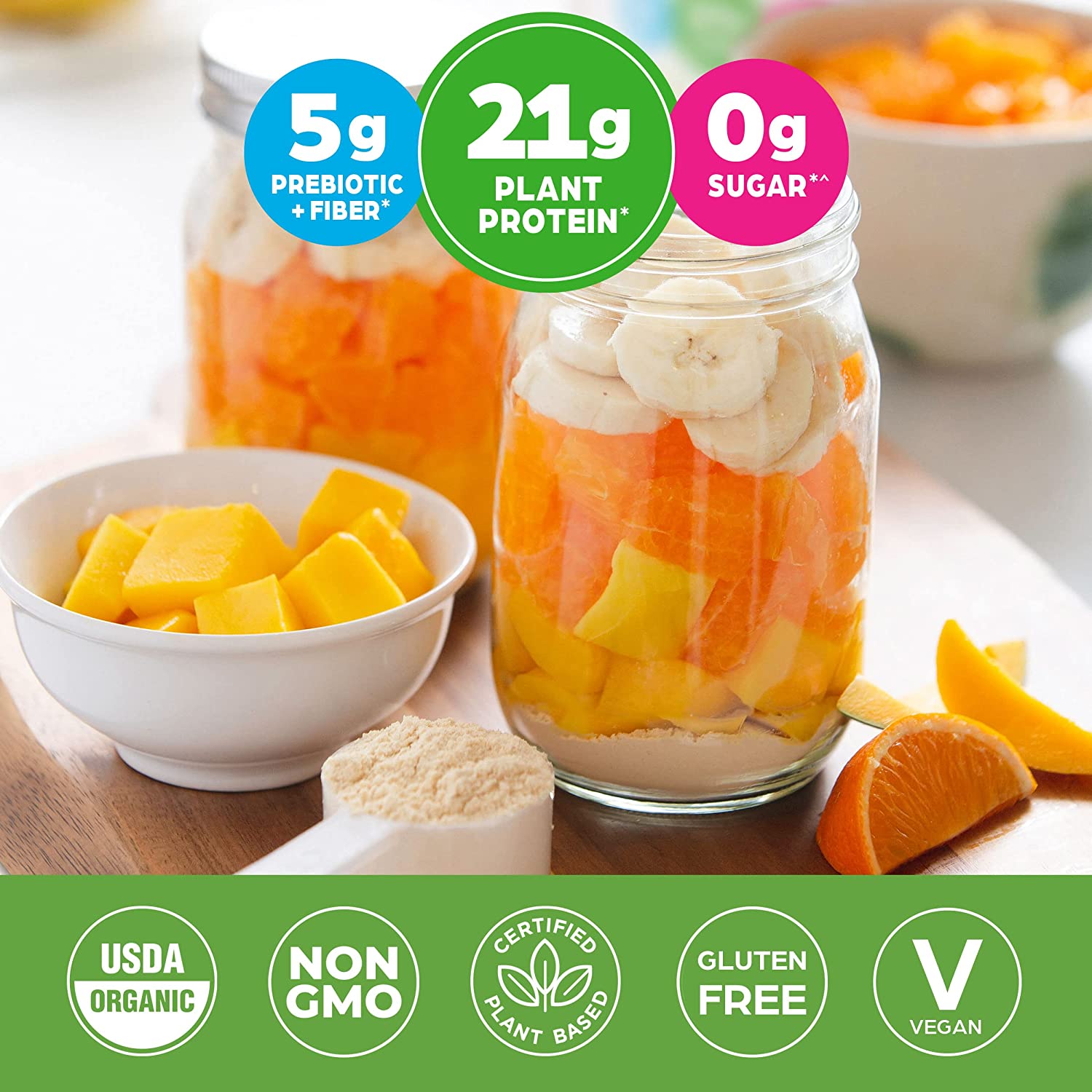
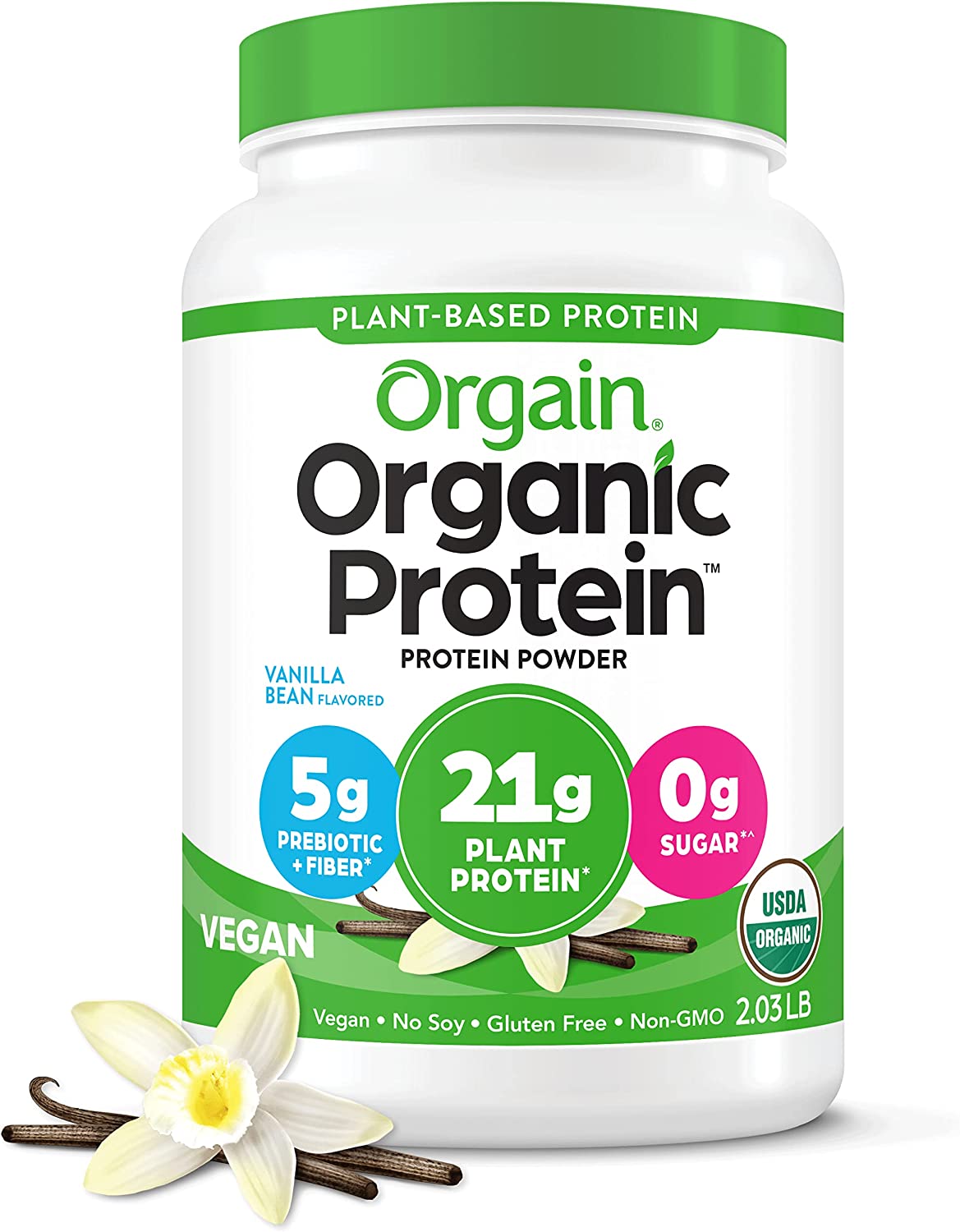

- 21 grams of organic plant based protein (pea, brown rice, chia seeds), 2 grams of organic dietary fiber, low net carbs, 0 grams of added sugar, 150 calories per serving
- USDA organic, vegan, gluten free, dairy free, lactose free, low net carbs, no added sugar, soy free, kosher, non GMO, carrageenan free, and no artificial ingredients
- Mix with water, milk, or your favorite protein shake recipe for a quick breakfast or snack drink. Use when baking to give your cakes, muffins, brownies, or cookies a protein and energy boost
- Ideal for healthy, on the go nutrition for men, women, and kids. These are great for meal replacement, smoothie boosters, muscle recovery, and pre or post workouts
Authors' Choice of Vitamin C
Garden of Life Vitamin C - Vitamin Code Raw Vitamin C

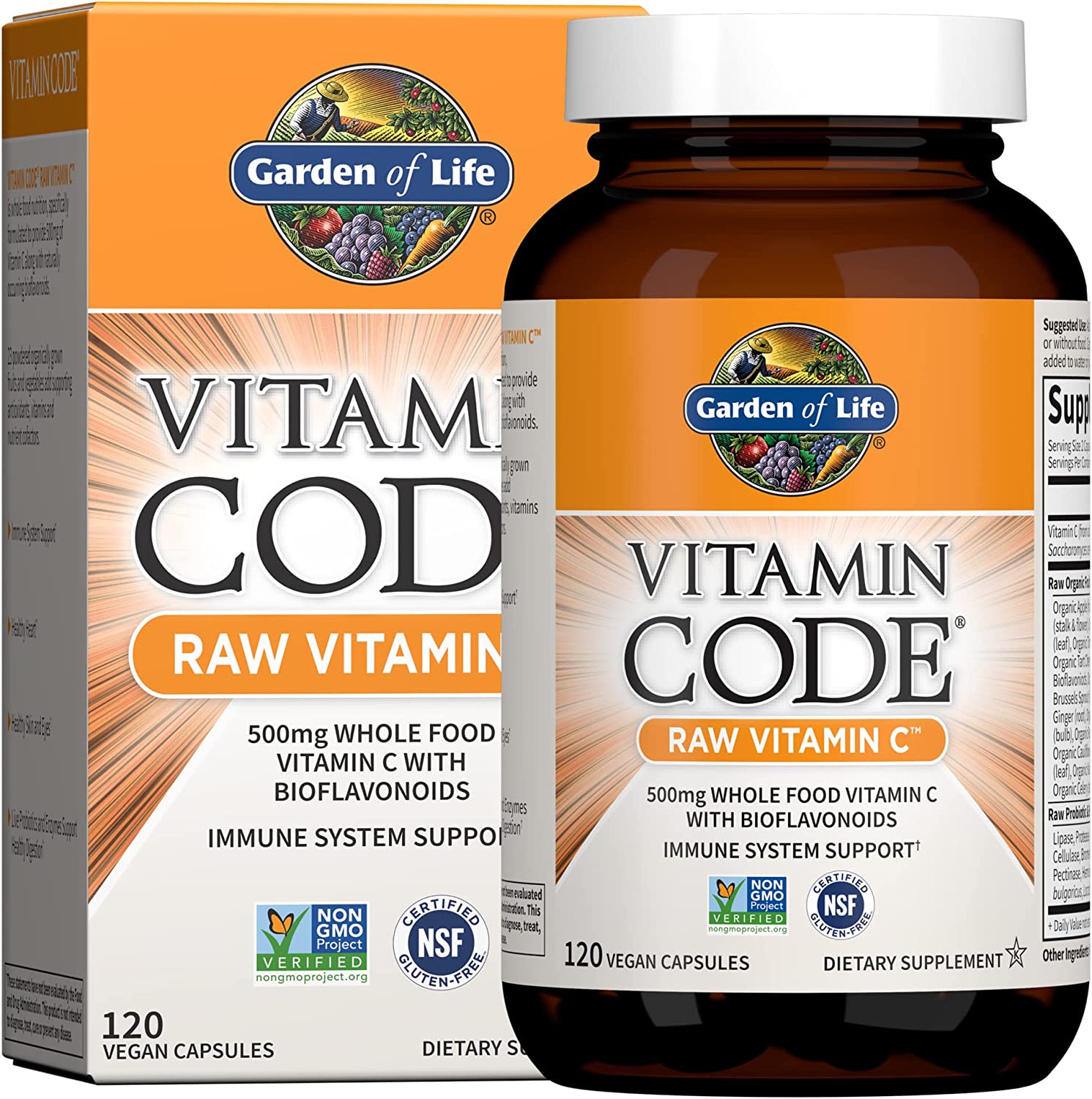

- Essential for growth and tissue repair, Vitamin C promotes vision health, periodontal health and collagen, bone and cartilage formation; Raw Vitamin C provides 500mg of Vitamin C along with naturally occurring bioflavonoids
- Whole food vitamin C provides support for immune system health, healthy heart, healthy skin and eyes; 23 powdered and organically grown fruits and vegetables add supporting antioxidants, vitamins and nutrient cofactors
- This plant based C vitamin formula includes a RAW Probiotic and Enzyme blend of live probiotics – L. bulgaricus and L. plantarum – and enzymes such as Lipase, Protease and Bromelain, to support healthy digestion
- Take 2 plant based veggie capsules daily, or open capsules and add vitamin C powder to water or juice; RAW means no high heat, and no synthetic binders or fillers commonly used in tablets
- This whole food vegan vitamin C is Non GMO, Gluten Free, Vegan & Kosher, and RAW—no high heat, synthetic binders, fillers, artificial flavors, sweeteners, colors or additives commonly used in tablets.
Authors' Choice of Healthy Fats
Natural Force Organic MCT Oil
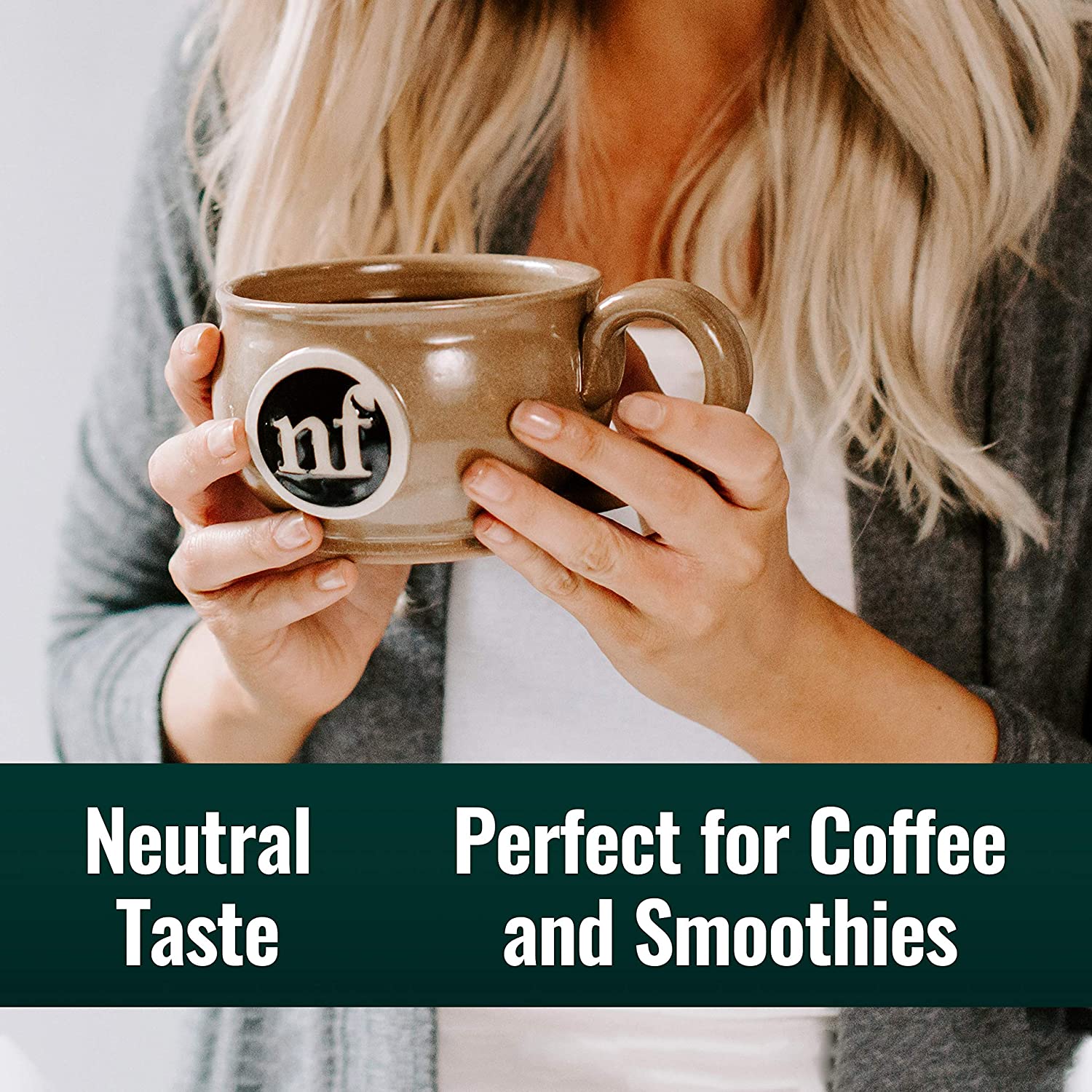
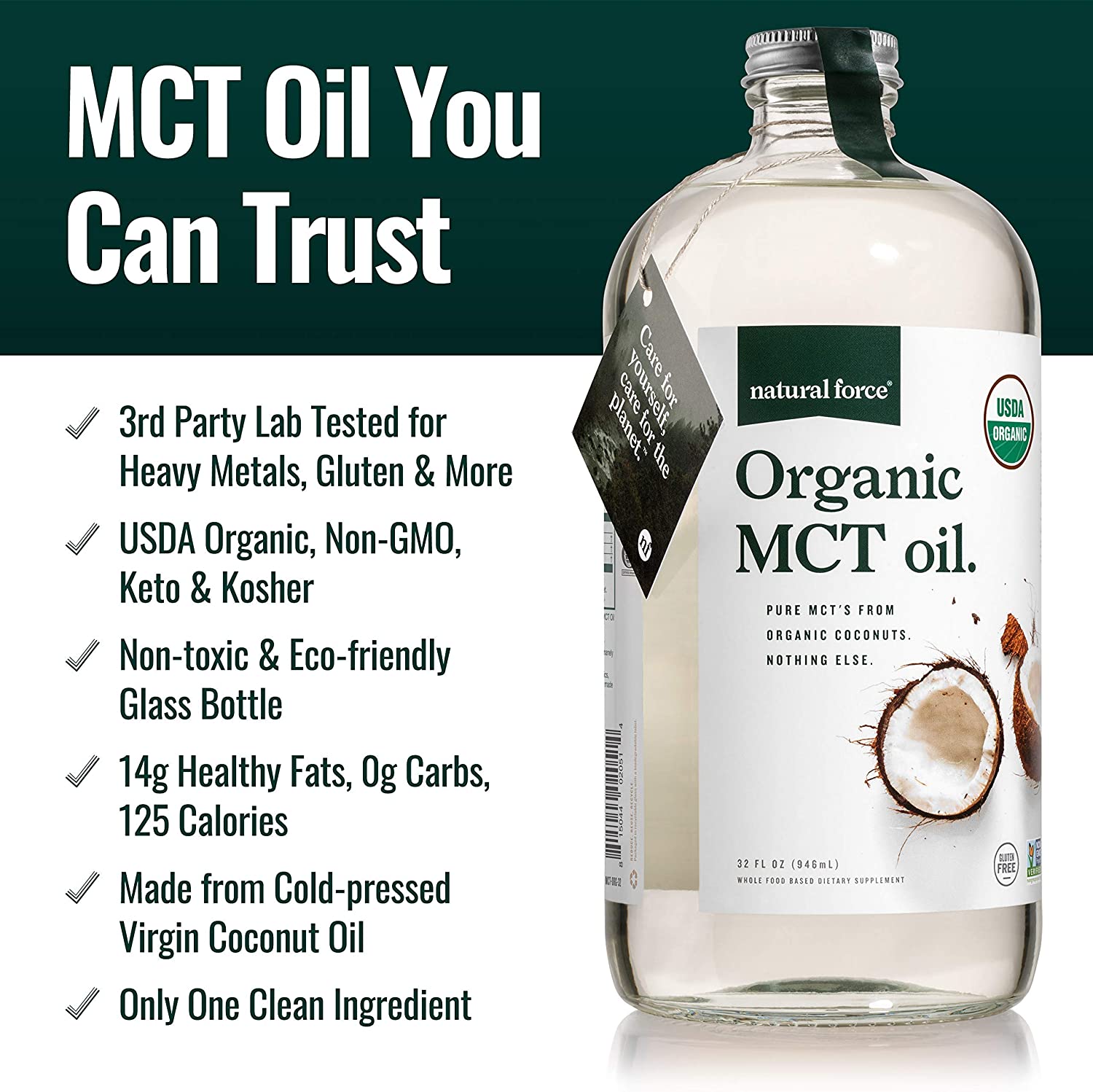
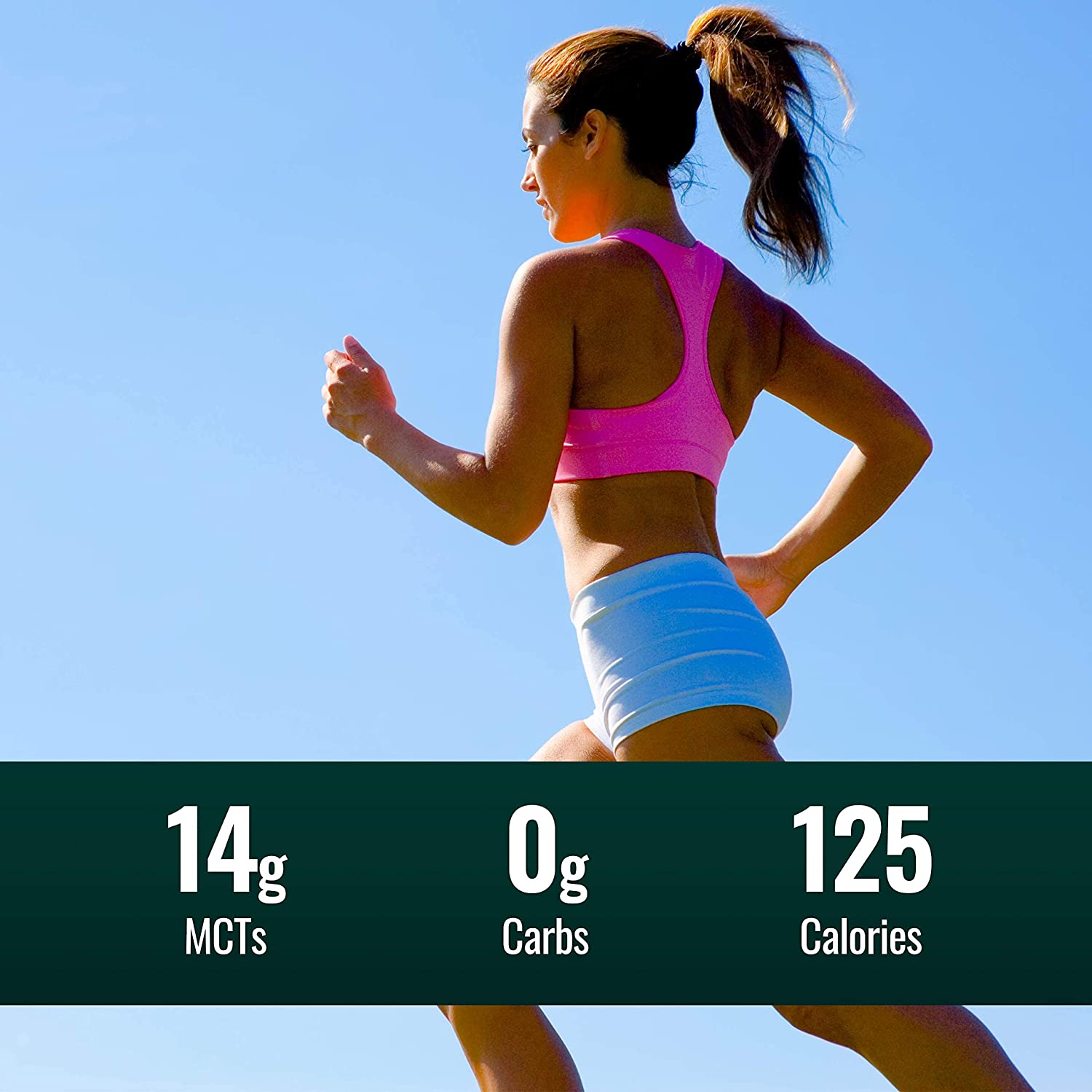
- MCT Oil from Organic Coconuts - Made from cold-pressed virgin coconut oil, Natural Force Organic MCT Oil provides 14 grams of high quality, full-spectrum MCTs (C8, C10, & C12) per 1 tbsp serving. With 0g sugar, 0g carbs, and only 125 calories per serving, it is the perfect source of healthy fats for keto and low carb coffee, smoothies, and cooking.
- Pure Glass Bottle and Eco-Friendly Packaging – Natural Force Organic MCT Oil is packaged in an infinitely recyclable, non-toxic pure glass bottle. The product label is biodegradable and printed with plant-based inks and the cap is made from infinitely recyclable food-grade aluminum.
- USDA Organic, Non-GMO Verified, Keto, Paleo Friendly, Kosher, & Vegan
- Lab Tested for Quality & Purity – Every batch of Natural Force Organic MCT Oil is produced in a cGMP certified facility and 3rd party lab tested for heavy metals, mold, gluten, and more.
Conclusion
Incorporating daily health routines into your lifestyle is an investment in your long-term well-being. You can maintain optimal health and vitality by prioritizing physical fitness, balanced nutrition, hydration, quality sleep, stress management, regular health check-ups, and mental and emotional well-being. Remember, small but consistent steps can lead to significant improvements over time.
Take charge of your health today and enjoy a lifetime of wellness!
Relevant Reads>>>



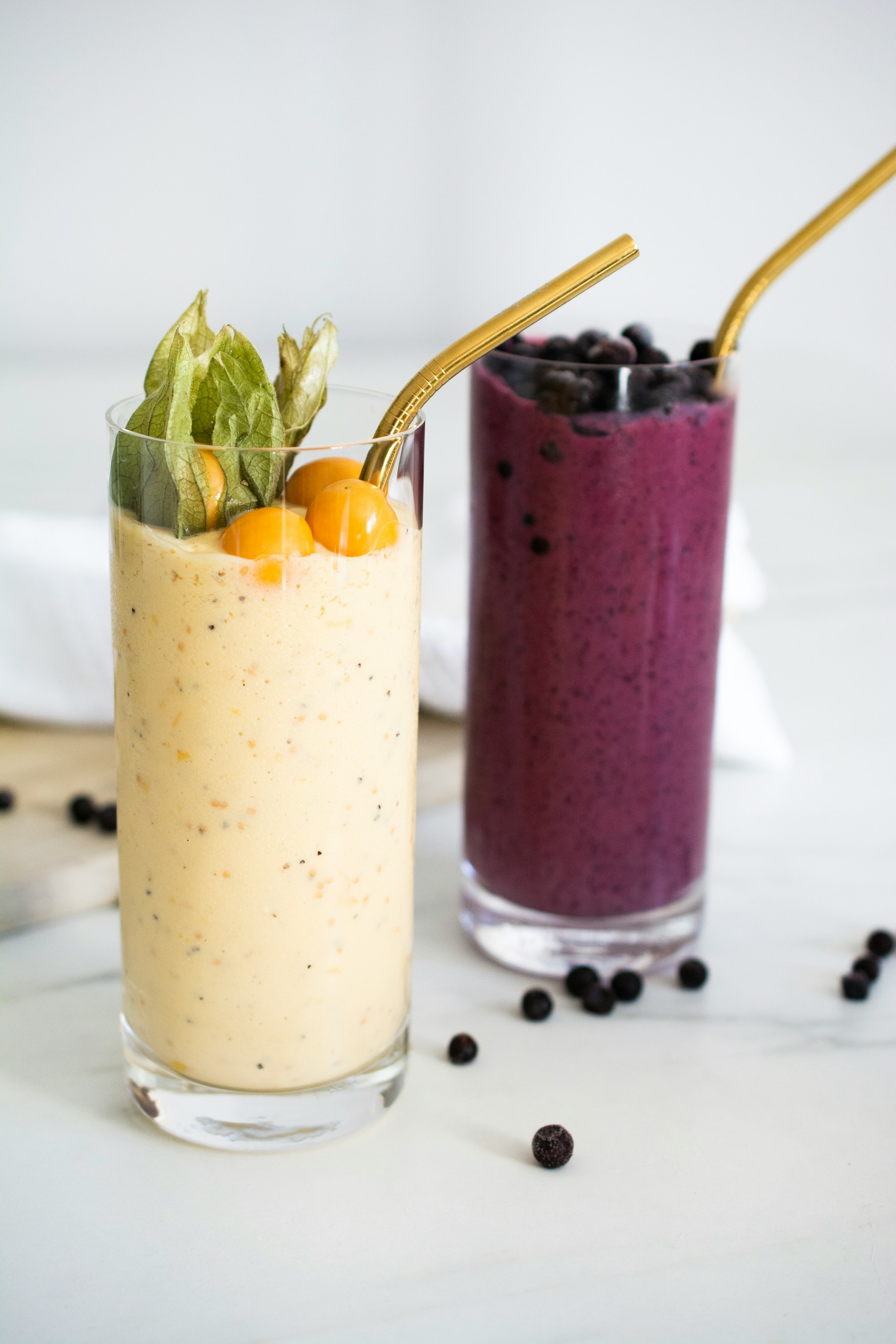
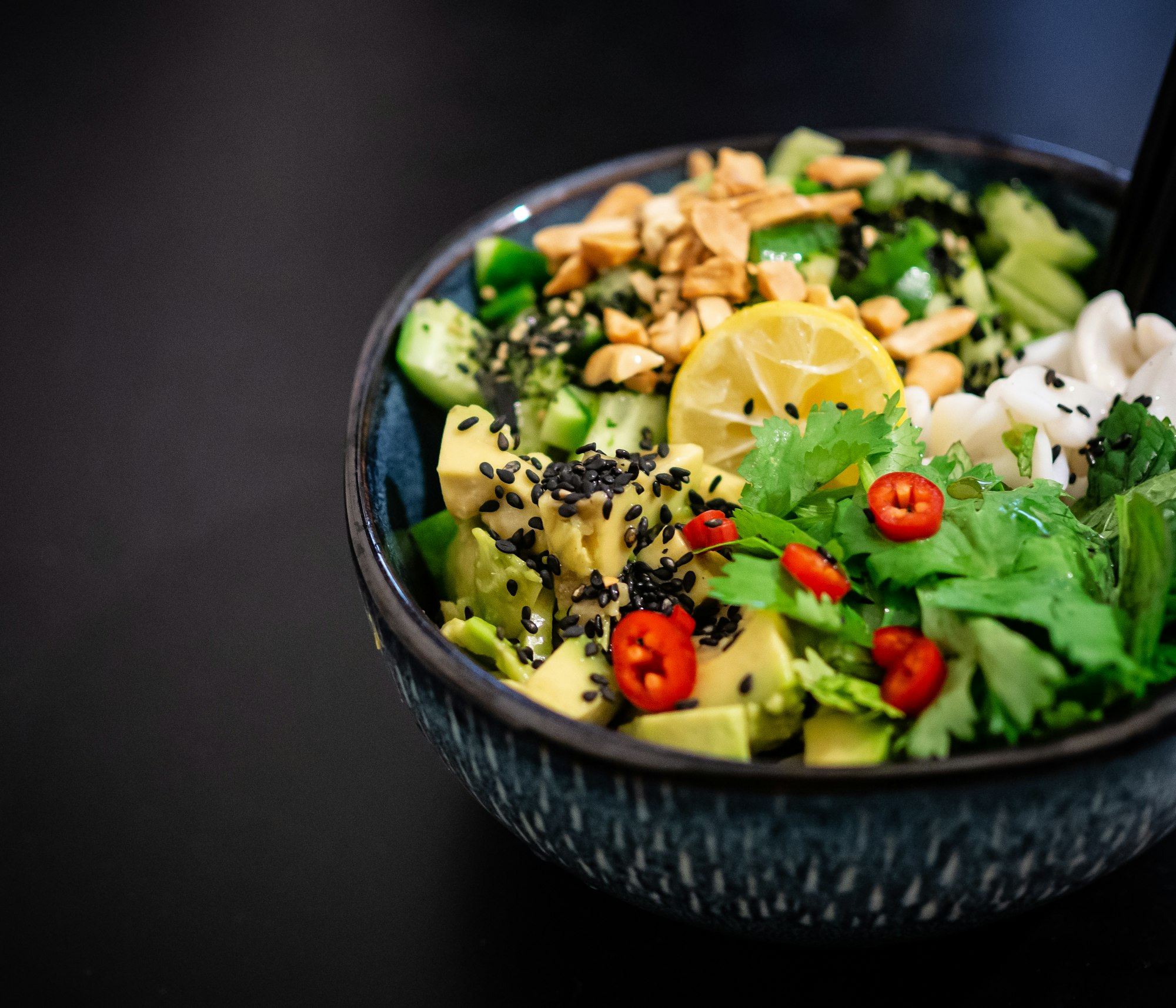
Here is how it works.
Thank you!









